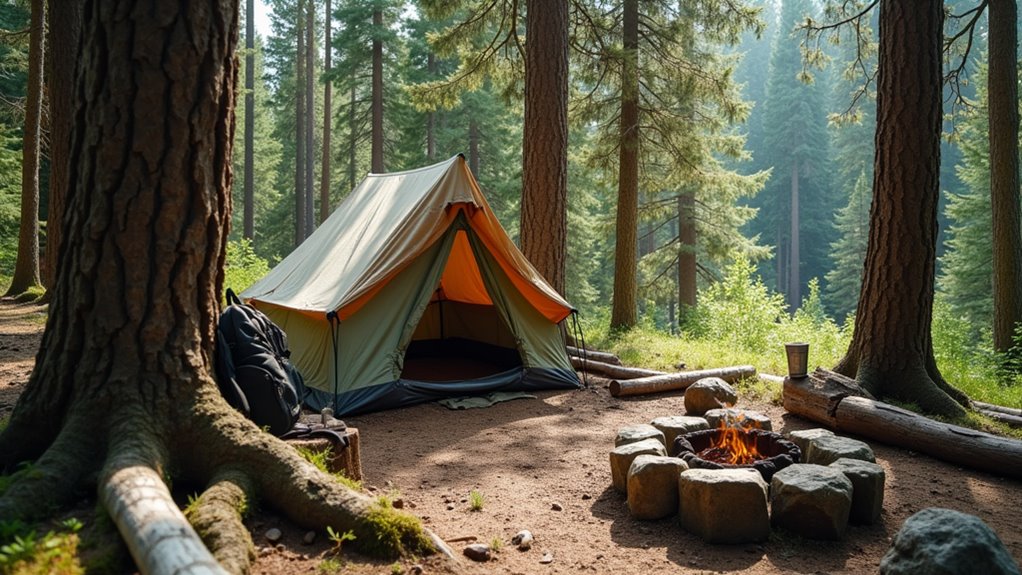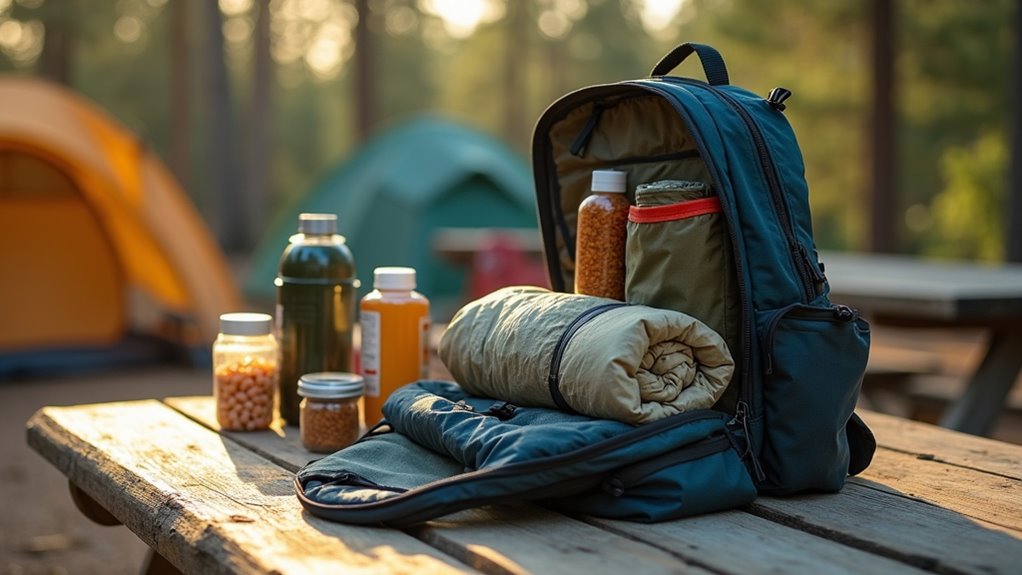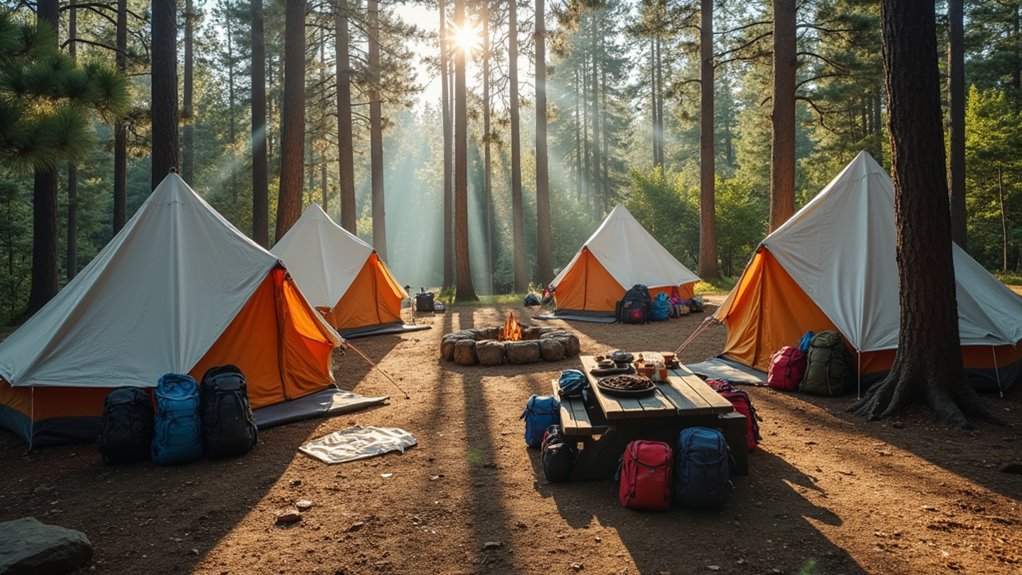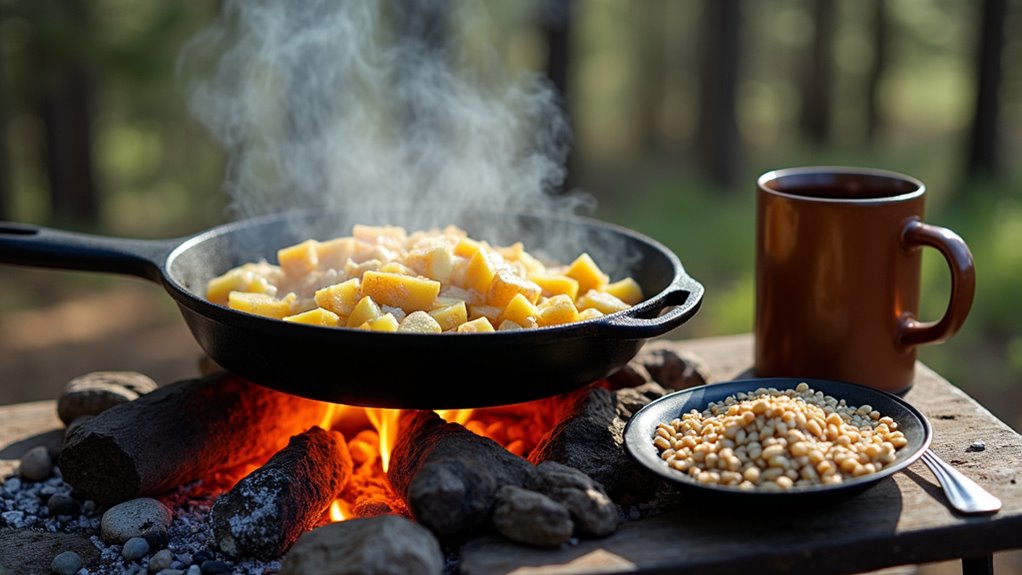Physical Address
304 North Cardinal St.
Dorchester Center, MA 02124
Physical Address
304 North Cardinal St.
Dorchester Center, MA 02124

Keep your camping dreams alive without breaking the bank with these seven money-saving strategies that outdoor enthusiasts swear by.
You don’t need to drain your bank account to enjoy the great outdoors. With some strategic planning and creative thinking, you can slash your camping costs without sacrificing the experience. Whether you’re a seasoned camper looking to stretch your dollar further or a beginner worried about expensive gear investments, there are proven ways to camp comfortably on a shoestring budget. Here’s how you can turn your next outdoor adventure into an affordable escape.

Since campground fees can quickly drain your wallet, you’ll want to master the art of finding free and low-cost sites before your next adventure. Start with apps like Campendium, FreeRoam, and iOverlander to locate dispersed camping spots on public lands.
National forests and Bureau of Land Management areas often allow free camping for up to 14 days. Check state parks during off-peak seasons when rates drop considerably.
Don’t overlook unconventional options like Harvest Hosts, where you’ll camp at farms and wineries for the price of purchasing their products. Hipcamp offers private landowners’ sites at budget-friendly rates.
Always call ahead to confirm availability and current fees, as prices change seasonally. Research local regulations beforehand to avoid unexpected fines that’ll blow your budget.
When camping during hot summer months, learn strategies to keep tent cool so you can sleep comfortably without relying on expensive RV hookups or air-conditioned cabins.
After securing your affordable campsite, you’ll need gear that won’t break the bank. Before buying anything new, ask friends and family if they’ll lend you equipment. Many people own camping gear they rarely use and are happy to share.
Check thrift stores, garage sales, and Facebook Marketplace for secondhand tents, sleeping bags, and camp stoves. You’ll often find quality gear at 50-70% off retail prices. Inspect items carefully for damage before purchasing.
Consider DIY alternatives for expensive items. Make fire starters from dryer lint and petroleum jelly. Create a camp sink using a large plastic container with a spigot. Build a simple camp table from plywood and folding legs.
When packing, remember there are certain items to leave at home that will save you space and money while camping.
Mix borrowed, used, and homemade gear to outfit your camping adventures affordably.

While campground stores offer convenience, they’ll drain your wallet with marked-up prices on forgotten essentials. Create a detailed packing checklist weeks before your trip, checking off items as you pack them. Double-check basics like matches, batteries, toilet paper, and first-aid supplies – these cost triple at campground stores.
Pack extra food beyond your planned meals. Bring snacks, instant coffee, and backup dinner options to avoid overpriced camp store groceries. Don’t forget cooking essentials like salt, cooking oil, and aluminum foil.
Store your gear in clear containers so you can quickly see what you’ve packed. Keep a master camping checklist on your phone for future reference. The few minutes spent organizing your packing system will save you hundreds in emergency purchases throughout your camping adventures.
Being well-prepared with proper supplies also demonstrates responsible camping practices that help preserve natural areas for future generations.
Timing your camping trip strategically can slash your costs by 30-50% compared to peak season rates. You’ll find the best deals by avoiding summer weekends, holidays, and school vacation periods. Instead, plan trips during weekdays in spring or fall when campgrounds offer lower rates and fewer crowds.
Consider lesser-known state parks over famous national parks – they’re often just as beautiful but cost markedly less. Remote locations typically charge lower fees than popular tourist destinations.
Mid-week arrivals often qualify for discounted rates that many campgrounds offer to fill empty sites.
Research campground pricing calendars online before booking. Some facilities offer early-bird discounts for advance reservations during off-peak periods.
You’ll also enjoy quieter surroundings, easier campsite selection, and better availability for prime spots. These smart tips can help you create memorable camping experiences without breaking your budget.

Since camping expenses like campsite fees, firewood, and gas can be split multiple ways, bringing friends or family along transforms your outdoor adventure into a budget-friendly group activity. You’ll cut costs dramatically when dividing campground reservations among four people instead of shouldering everything yourself.
Coordinate gear sharing to avoid duplicate purchases. One person brings the camp stove, another handles the cooler, and someone else provides the tent. You’ll save money on food by cooking large group meals instead of individual portions. Split grocery costs and buy in bulk for better deals.
Choose campsites that accommodate larger groups without extra fees. Many campgrounds charge per site rather than per person, making group camping incredibly cost-effective. Plan activities everyone enjoys to maximize your shared investment.
Group camping also provides an excellent opportunity to adopt eco-friendly practices together, from sharing resources to reducing overall environmental impact through coordinated conservation efforts.
Before you rush to buy expensive camping gear, take a walk through your house to discover multipurpose items that’ll work perfectly in the wilderness. That old cooler doubles as a washing basin or extra seating. Empty coffee cans become portable storage containers for matches, toiletries, or cooking utensils. Duct tape fixes torn tents, secures tarps, and patches gear. Your kitchen’s aluminum foil serves as a windscreen for camp stoves, heat reflector, or makeshift cooking surface.
Large garbage bags work as rain ponchos, ground covers, or pack liners. Bandanas function as washcloths, napkins, or first-aid supplies. Mason jars store spices, hold beverages, or become lanterns with battery-powered lights inside. Just like deciding whether to rent or buy a boat for occasional fishing trips, choosing to repurpose household items instead of purchasing new gear can lead to significant savings. You’ll save hundreds of dollars while discovering that household items often outperform expensive camping gadgets.

While gourmet camp cooking might look impressive on social media, you’ll stretch your budget further with simple, filling meals built around cheap staples. Focus on ingredients that work across multiple meals and don’t require refrigeration.
Stock up on these budget-friendly essentials:
If you’re planning outdoor activities like rock climbing during your camping trip, these portable and energy-dense foods become even more valuable for fueling your adventures.
You’ll eat well without overspending when you keep meals uncomplicated.
You don’t need deep pockets to create memories that’ll last a lifetime under the stars. By hunting down free campsites, borrowing gear, and sharing costs with friends, you’re already ahead of the game. Pack smart, choose off-peak times, and repurpose household items to stretch every dollar. With these budget-friendly strategies in your back pocket, you’ll discover that the best adventures don’t come with hefty price tags—just smart planning and creativity.